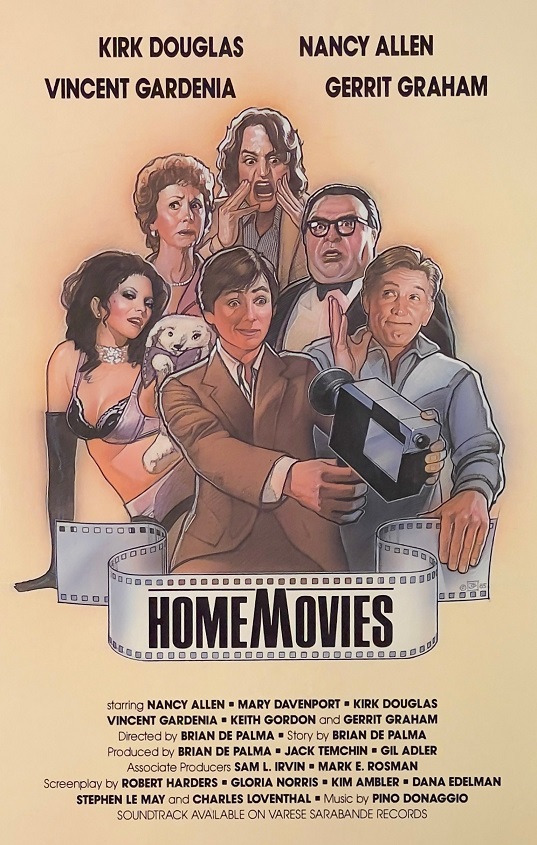RYAN GILBEY ON "THE EXPLORATION OF FILM AS COPING MECHANISM, DISTANCING DEVICE, & VOYEURISTIC TOOL"

Brian De Palma's own mid-career, drawn-from-real-life "Fabelmans" was straight-up comedy - he made Home Movies as a project for a film class he was teaching at Sarah Lawrence College in 1979 with students so they could learn, hands-on, by making a film themselves. Steven Spielberg was one friend who helped him with funding. When asked about his childhood, De Palma told one interviewer, "See Home Movies, it's all there." (The figure at the center of this poster art above, holding the camera, looks nothing like Keith Gordon, who is actually the De Palma surrogate/main character in this film.)
In a review of Spielberg's The Fabelmans at New Statesman, Ryan Gilbey writes:
Movies enter Sammy’s life in 1952 when he is taken by her and his father, a placid engineer named Burt (Paul Dano), to see The Greatest Show on Earth. He emerges startled from the film – which really did inspire Spielberg’s youthful wish, long since surpassed, to become the “Cecil B DeMille of science-fiction” – but is soon demanding an electric train set for Hanukkah so that he can recreate its spectacular crash at home. Mitzi suggests that he shoot the scene on his father’s cine camera to avoid damaging the toys in repeated pile-ups. Only later does she comprehend the function of filming: it enables Sammy to control the chaos of reality.As a teenager, he sees life through an invisible viewfinder. Visiting a dying relative, he notices the pulse drumming feebly in her neck. When his parents fight, he pictures himself weaving among them, capturing all the best angles. Shooting a home movie on a family camping trip, Sammy inadvertently uncovers a secret: Mitzi and his father’s goofy best friend, Bennie (Seth Rogen), are in love.
We have already heard Sammy’s feral Uncle Boris (Judd Hirsch) raging about how the competing demands of family and art will “tear you in two”. The exploration of film as coping mechanism, distancing device and voyeuristic tool, however, nudges The Fabelmans briefly into the territory of Brian De Palma. Spielberg’s friend and fellow “movie brat” amassed evidence of his own father’s infidelities, his predilection for surveillance later driving thrillers such as Dressed to Kill and Blow Out. What a surprise to find Spielberg, the supreme sentimentalist, occupying that murky realm. We didn’t know he had it in him.



